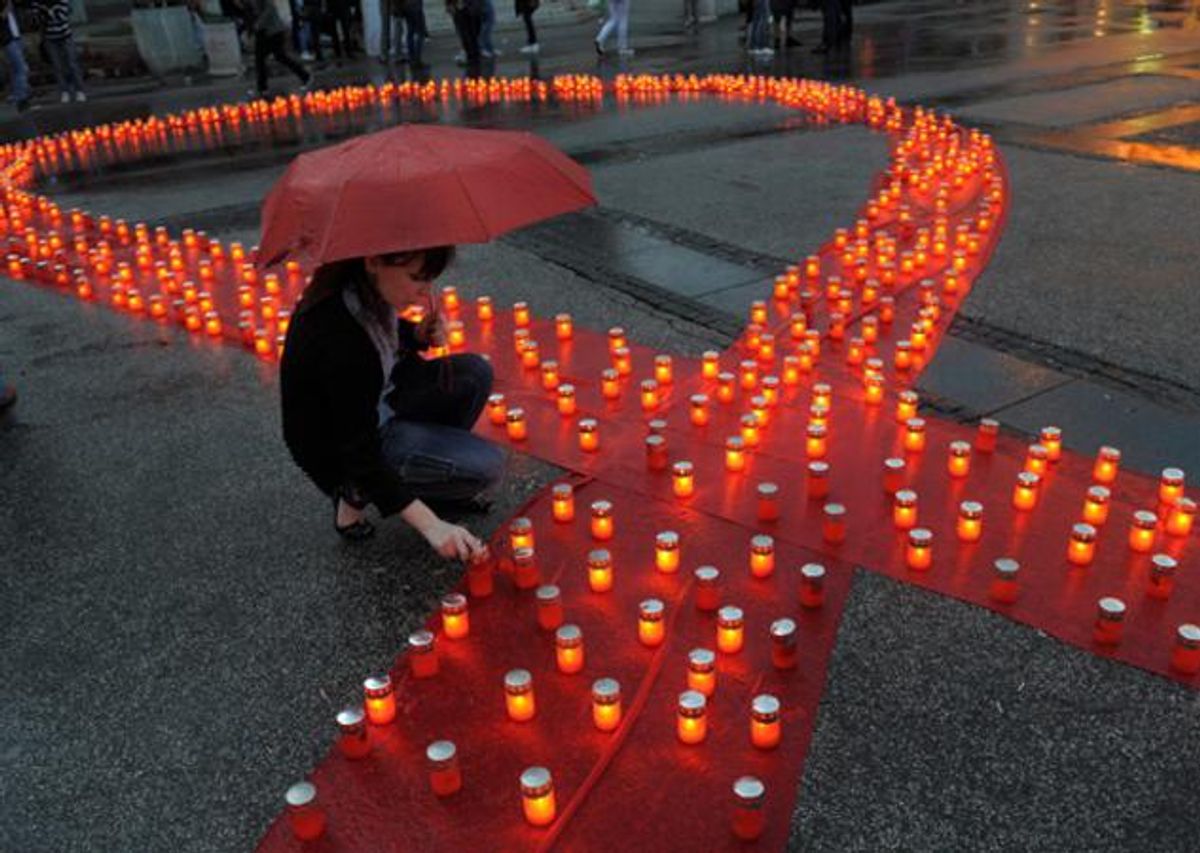Timothy Ray Brown became internationally famous in 2010 after doctors in Berlin apparently and unwittingly "cured" his HIV infection. This medical marvel came after Brown underwent a routine bone marrow transplant for blood cancer treatment. The transplant, made with material from a donor with a rare blood mutation that makes it impossible for HIV to replicate, was a success. The cancer was gone and, as a surprising bonus, so was Brown's HIV. For now, at least, many say Brown has been "cured."
The c-word will likely be bandied about over today's news coming out of Boston — that two more people are free of HIV after similar bone marrow transplants — but doctors there seem to prefer the term "remission."
As with Brown, these two patients were fighting both HIV and blood cancer and underwent marrow transplants as a last resort to fight the cancer. Unlike the Brown case, neither of the patients' donors had the anti-HIV blood mutation. Their HIV should have lingered post-surgery. Theoretically, at least. But it didn't. Now the patients, two-and-a-half years after their transplants, are being described as "virus free" because they don't have detectable HIV.
According to The New York Times, "The two patients had transplants between two and five years ago. They had months of tests on their blood and tissues to make sure no HIV or antibodies to it were found, before Dr. [Timothy] Henrich and his research partner, Dr. Daniel Kuritzkes, proposed stopping the antiretroviral treatment. For such tests, doctors remove immune cells and 'activate' them with chemicals to make them reproduce. If any virus is hiding in the cells’ DNA, it is 'spit out' and can be detected."
Doctors think antiretroviral drugs given after the transplants helped keep HIV from regenerating in the new cells, which is why the patients are in "remission," as one doctor called it. The two Boston patients "feel great and are leading completely normal lives," said their doctor.
Before you get too excited, keep in mind there's still tons of research to do and bone marrow transplants are not an option for treating people most with HIV.
As the New York Times reports, "The technique used on them involves severely weakening the immune system before a marrow transplant. It is so dangerous that it is unethical to perform it on anyone not already at risk of dying from cancer, especially because most people with HIV can live relatively normal lives by taking a daily antiretroviral cocktail."
But who knows? Maybe future doctors, discussing HIV's end, will say, "The cure was in us all along."













































































